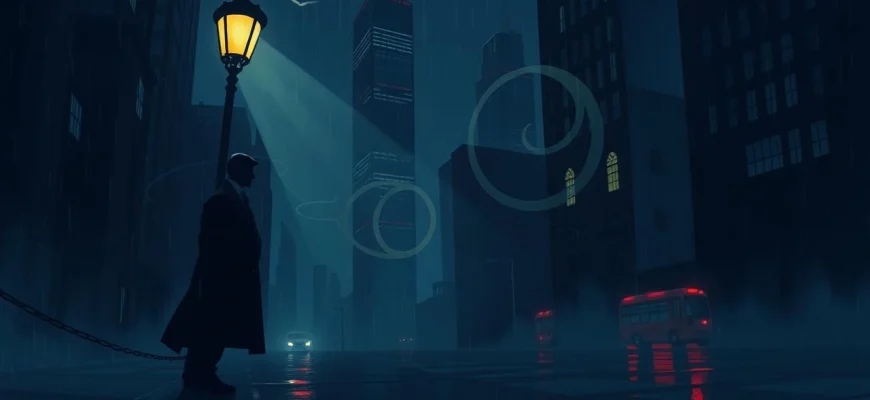If you loved the dark, twisted allure of 'Nightmare Alley' (2021), you're in for a treat. This article explores 10 movies and shows that share its themes of deception, psychological depth, and noir-style storytelling. Whether you're drawn to its morally ambiguous characters, its atmospheric tension, or its gripping narrative, these recommendations will keep you on the edge of your seat. Dive into this curated list to discover your next obsession.

The Cabinet of Dr. Caligari (1920)
Description: Like 'Nightmare Alley', this German Expressionist masterpiece explores themes of madness, manipulation, and unreliable narration. Both films feature striking visual styles that reflect their protagonists' psychological states.
Fact: Considered the first true horror film and a landmark of German Expressionism. The film's twisted, angular sets were designed to represent a 'demented world'. The original ending was changed by producers, creating controversy among the filmmakers.
 Watch Now
Watch Now 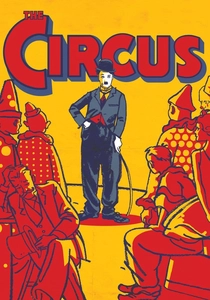
The Circus (1928)
Description: Charlie Chaplin's silent classic shares with 'Nightmare Alley' a circus setting and themes of performance as both escape and entrapment. Both works explore how entertainment can mask personal pain and vulnerability.
Fact: Chaplin was going through a difficult divorce during production. The film won Chaplin an honorary Oscar at the first Academy Awards. A fire destroyed many original negatives, making existing prints particularly valuable.
 Watch Now
Watch Now 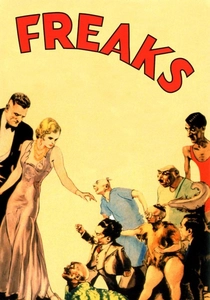
Freaks (1932)
Description: This classic horror film shares with 'Nightmare Alley' a carnival setting and themes of exploitation and revenge. Both works challenge audience perceptions of 'normalcy' and feature marginalized characters seeking justice against those who wronged them.
Fact: The film was banned in the UK for 30 years due to its controversial content. Director Tod Browning used actual circus performers in the cast. The original cut was 90 minutes long but was edited down to 64 minutes after negative test screenings.
 Watch Now
Watch Now 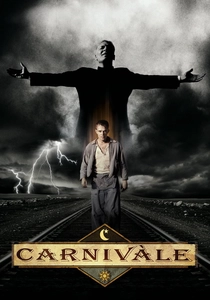
Carnivàle (2003)
Description: This HBO series shares with 'Nightmare Alley' a Depression-era carnival setting and themes of mysticism, destiny, and the struggle between good and evil. Both works feature characters with hidden pasts and supernatural elements intertwined with gritty realism.
Fact: The show was originally planned for six seasons but was canceled after two due to high production costs. The series won 5 Emmy Awards during its run. Creator Daniel Knauf drew inspiration from Dust Bowl photography and 1930s American folklore.
 Watch Now
Watch Now 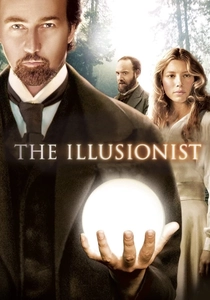
The Illusionist (2006)
Description: Like 'Nightmare Alley', this film explores the world of stage magic and illusion, with a protagonist who uses his skills to manipulate reality. Both films feature a romantic subplot and examine how performers create personas that blur the line between reality and deception.
Fact: The film is based on Steven Millhauser's short story 'Eisenheim the Illusionist'. Edward Norton learned sleight-of-hand magic for his role. The film uses a sepia-toned color palette to evoke early 20th century Vienna.
 Watch Now
Watch Now 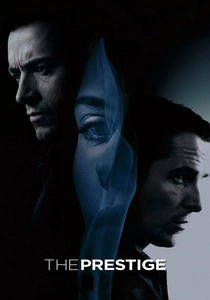
The Prestige (2006)
Description: Similar to 'Nightmare Alley' in its exploration of deception, obsession, and the dark side of showmanship. Both films delve into the psychological toll of maintaining illusions and the moral compromises characters make to achieve their goals. Directed by Christopher Nolan, it shares a visually rich and atmospheric style with 'Nightmare Alley'.
Fact: The film is based on Christopher Priest's 1995 novel of the same name. Hugh Jackman and Christian Bale underwent extensive training to perform their own magic tricks. David Bowie plays Nikola Tesla in a memorable supporting role.
 Watch Now
Watch Now 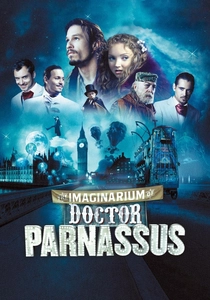
The Imaginarium of Doctor Parnassus (2009)
Description: Like 'Nightmare Alley', this Terry Gilliam film explores themes of illusion, morality, and deals with the devil. Both feature traveling shows that offer audiences escape from reality, while the performers grapple with supernatural consequences.
Fact: Heath Ledger's final film role; his part was completed by Johnny Depp, Jude Law, and Colin Farrell. The film's visual style was inspired by medieval illuminated manuscripts. Tom Waits plays a memorable incarnation of the Devil named Mr. Nick.
 Watch Now
Watch Now 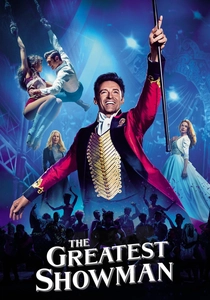
The Greatest Showman (2017)
Description: While more upbeat in tone than 'Nightmare Alley', both films examine the world of carnival entertainment and the creation of spectacle. They share themes of reinvention and the tension between authenticity and performance in show business.
Fact: Hugh Jackman spent years developing the project about P.T. Barnum's life. The film's soundtrack spent 28 weeks at #1 on the Billboard albums chart. The 'This Is Me' song won the Golden Globe for Best Original Song.
 Watch Now
Watch Now 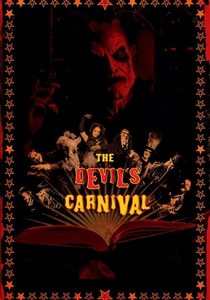
The Devil's Carnival (2012)
Description: This musical horror film shares with 'Nightmare Alley' a carnival setting and themes of moral temptation. Both works use the carnival as a metaphor for the human condition and feature characters making Faustian bargains.
Fact: Created by the team behind the 'Repo! The Genetic Opera' musical. The film features original songs by Terrance Zdunich and Saar Hendelman. It was funded through fan contributions and released via a unique roadshow tour.
 Watch Now
Watch Now 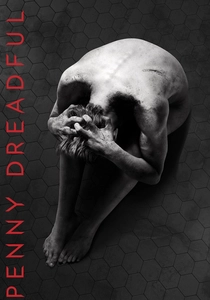
Penny Dreadful (2014)
Description: Shares with 'Nightmare Alley' a gothic atmosphere and exploration of the monstrous aspects of human nature. Both works blend psychological horror with period drama elements and feature characters grappling with their inner demons.
Fact: The series draws characters from classic Gothic literature including Dracula, Frankenstein, and Dorian Gray. Eva Green's performance earned her a Saturn Award for Best Actress. Creator John Logan envisioned the show as 'a psychodrama about people wrestling with their souls'.
 Watch Now
Watch Now 
